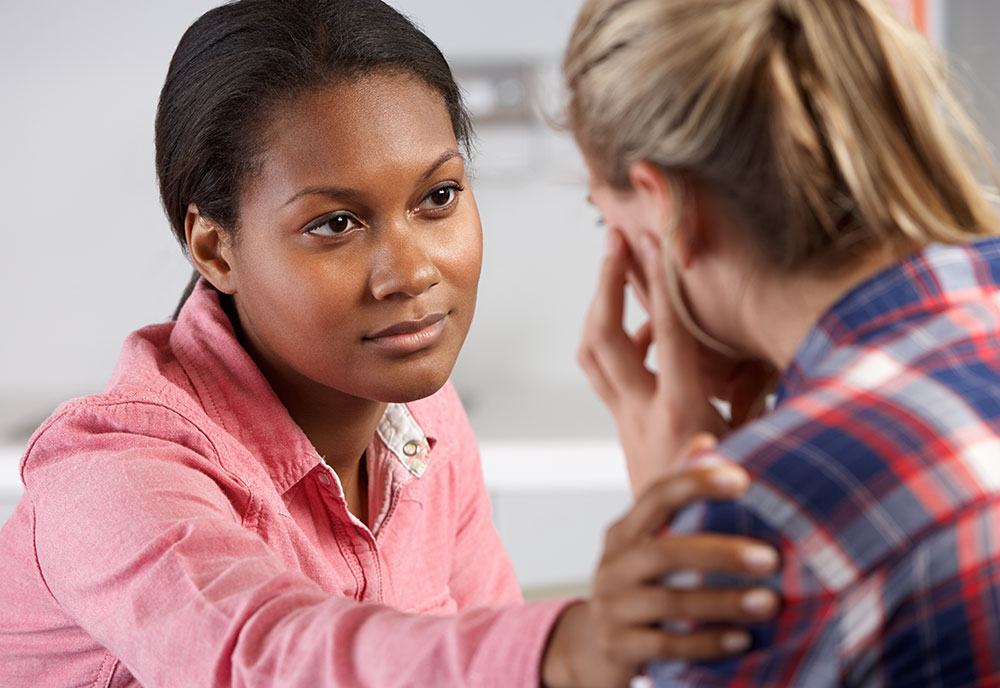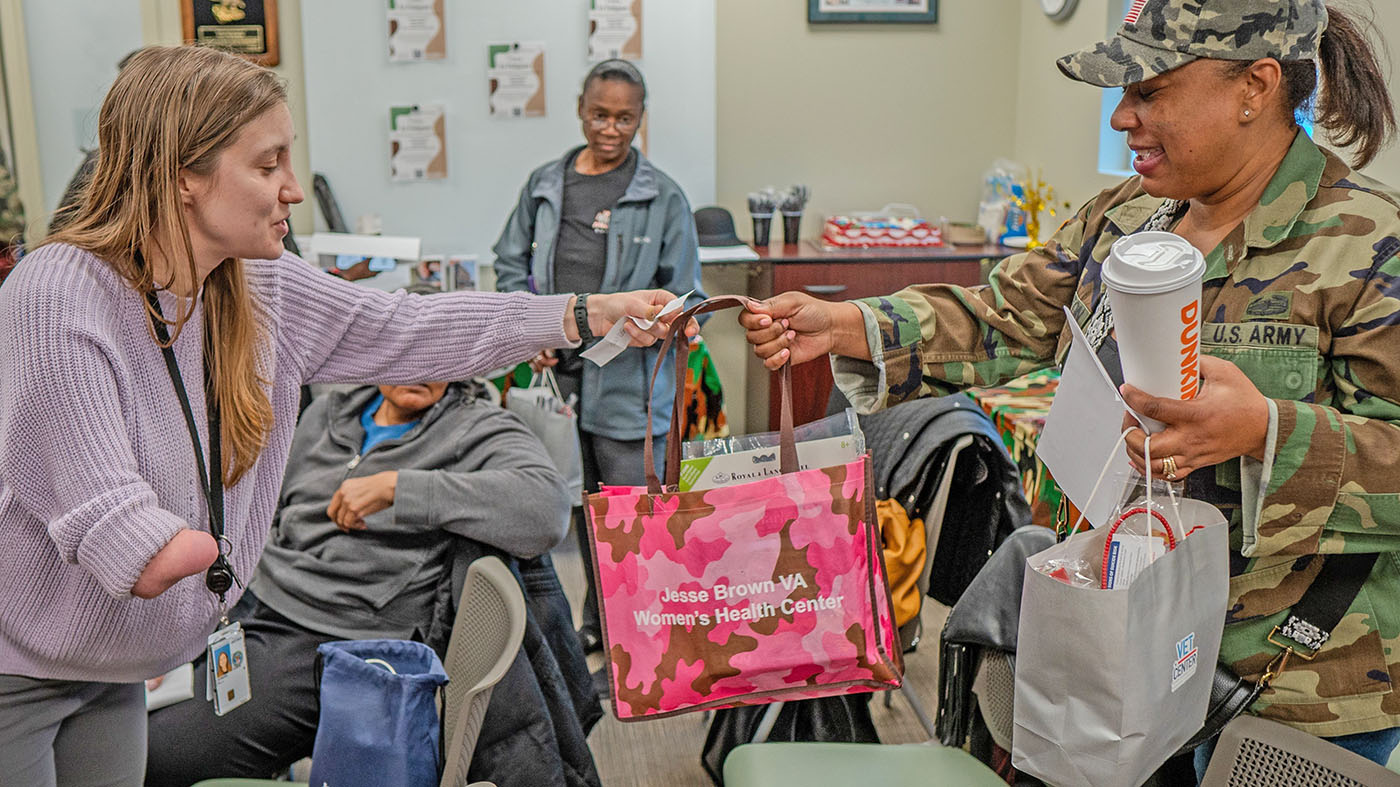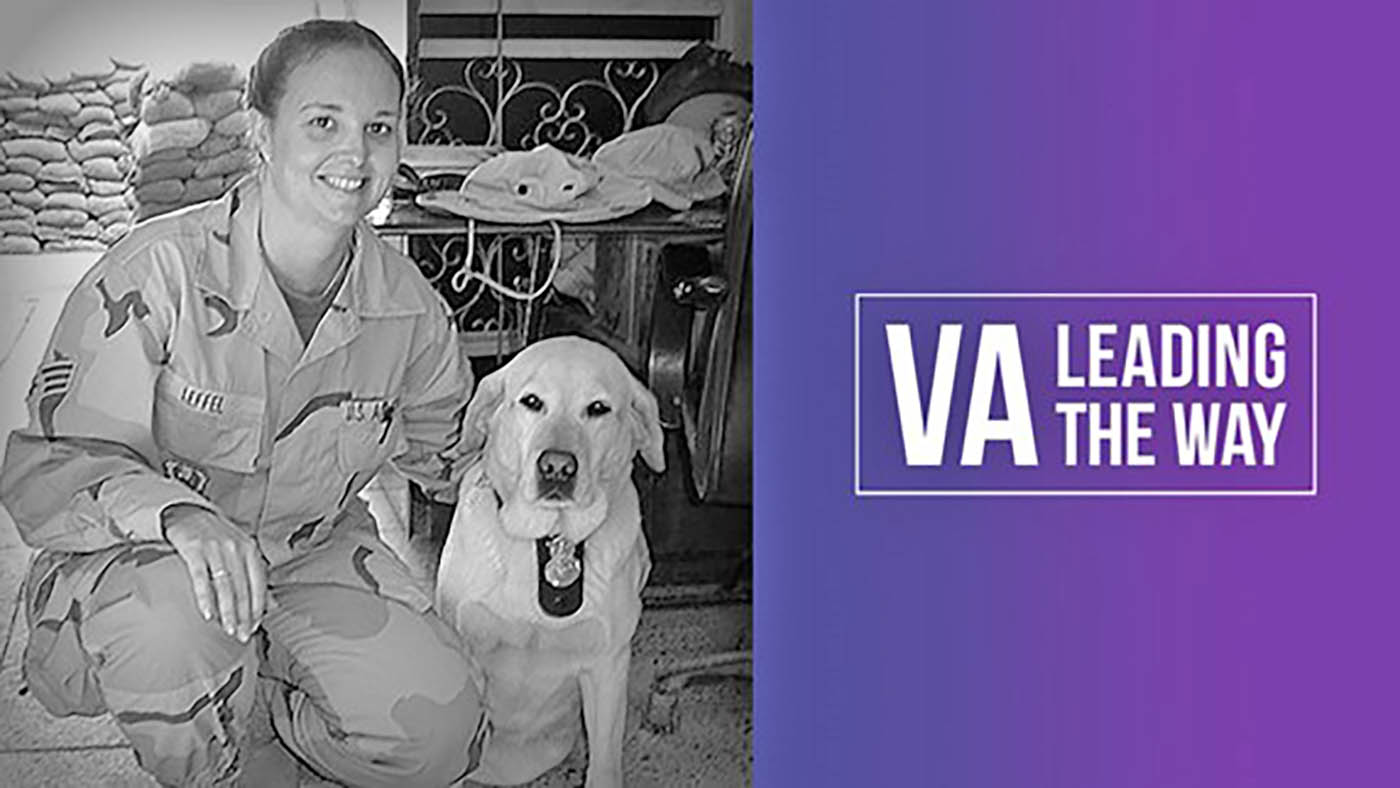The Albany Stratton VA Medical Center in Albany, New York, is always seeking new ways to connect women Veterans with support that meets their unique needs. This focus frequently extends to the annual VA mental health summits, where we discuss issues that women Veterans face and ways to apply what we’ve learned at our facility.
Since 2012, VA hospitals across the country have held annual mental health summits to open lines of communication between their mental health care providers and leaders, organizations and residents in the local community. The summits recognize that truly Veteran-centered, recovery-oriented care requires the facilities active and ongoing cooperation with community partners.
The goal of the summits is to find innovative ways to improve health care for Veterans. No matter how big or small, each mental health summit aims to:
- Increase community connections and strengthen the information systems that form the backbone of those connections.
- Identify local mental health stakeholders and bring them to the table as part of an integrated treatment team for Veterans and their families.
- Enable Veterans to meet with representatives of Veterans service organizations and hospitals to help them make sure their programs and events align with Veterans’ needs.
- Promote follow-up action and continued collaboration throughout the year.
The Albany Stratton VA Medical Center team is especially interested in addressing the barriers to care for women Veterans. I presented on this topic at last year’s summit in Albany, New York. My presentation focused on one of the most commonly cited barriers to women Veterans’ access to care: negative perceptions about seeking treatment for mental health issues. Concerns come in many forms, such as worries about being prescribed psychiatric drugs or the notion that mental health treatment may not be effective. At the summit, we discussed how VA employees can better address these concerns and encourage women Veterans to seek care. We learned quite a bit during the summit, but most importantly, we realized we needed to offer more wellness services for women Veterans.
Women’s Wellness Day
We convened our first Women’s Wellness Day workshop during National Women’s Health Week in May 2017. Our goals were to provide a safe space for women Veterans to enhance their well being, to help women Veterans in our community learn about effective ways to cope with challenges that impact their mental health and wellness, and to educate them about the importance of addressing their overall health — physical and mental — by seeking support from caring VA clinicians. Offered exclusively to women Veterans, the workshop included discussions about treatments that are complementary to medication and the ways in which VA programs can best help women.
Women’s Wellness Day was the product of collaboration between clinicians and staff from our medical center’s women Veterans program. Our psychiatrist held two sessions during the daylong workshop on mindfulness and coherent breathing to help patients cope with challenges like stress and anxiety. Social workers led women Veterans in an exercise on journaling and creative writing. Participants were also invited to take part in creative arts and music sessions.
The workshop was a success. At the end of the day, we collected surveys from attendees about what worked for them and what we can improve in future workshops. The feedback was overwhelmingly positive.
Does your organization serve women Veterans? Are you a Veteran looking for support? Explore the following resources:
- Center for Women Veterans homepage: va.gov/womenvet/
- Women Veterans Call Center: Call 1-855-VA-WOMEN (1-855-829-6636), or chat here, by clicking on the “Chat with the Women Veterans Call Center” icon. The call center is available Monday through Friday, 8 a.m.–10 p.m. Eastern time, and on Saturdays, 8 a.m.– 6:30 p.m. Eastern Time.
- net: Hear from Veterans about treatments that work, explore mental health conditions and symptoms, and find local resources for Veterans and their families.
- VA Mindful Moments and Mindful Visualization MP3s: Visit albany.va.gov/services/Mental_Health.asp and select from the Resources callout box.
- Resource Locator: To find local Veteran resources, including VA medical centers, suicide prevention coordinators, Vet Centers and outpatient clinics, visit www.veteranscrisisline.net/GetHelp/ResourceLocator.aspx.

Topics in this story
More Stories
Chicago Vet Center and VA gave women Veterans information on VA services available to them.
VA is committed to providing safe, accessible care that meets the unique challenges faced by black mothers.
Women Veterans are the fastest-growing Veteran population and VA has evolved its care to meet their needs.







What happened to my post I spent an hour working on?
At Puget Sound VA, My doc blamed me for getting beat up to unconsciousness; says I must have asked for it. VA later used this as one of their excuses in their Risk Assessment of how dangerous I am, in their retaliation effort.
This felt like the Army in the 1970s all over again. As a female veteran, if I get beat up by a male, it’s obviously my fault according to my local VA and I’m punished for it. WOW! We haven’t come very far in Seattle Washington since 1974 – 1978.
At my VA, never let anything slip into your MH record that you would be afraid for the VA cops to read, they could flag you for it.
What do you mean they will flag you? What kind of things are we talking about?